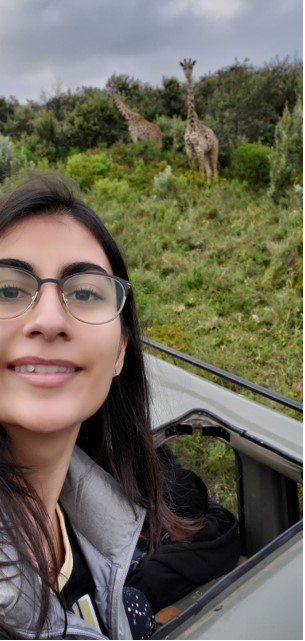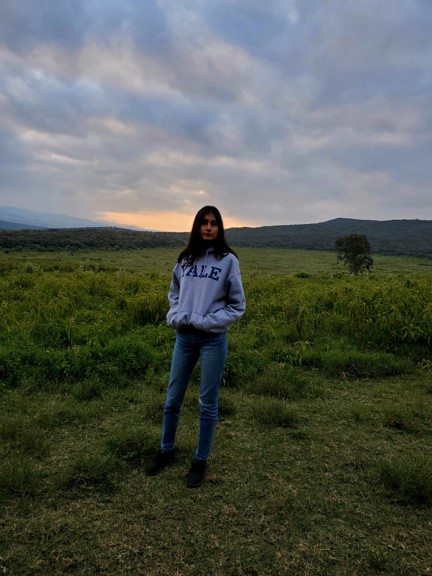Environmental Leadership: Kenya Inspired Me
Environmental Leadership: How Growing Up in Kenya Inspired Me. Retreating glaciers, drought, increased CO2 levels in the atmosphere, COVID 19, poverty, petropolitics, biodiversity loss; far too many disasters prove we have a debt to pay to our planet and our people, a duty to evolve society around sustainable ways of life. The interdependent relationship between humans and the Earth has always captivated me. Climate change has a significant impact on every aspect of the daily lives of all people; possibly even greater than war. Part of the problem is that the threat still feels as though it is just a speculation. Raising public attention around problems that world leaders, institutions and governments are denying and most of the population has no knowledge of or doesn’t believe in has proven to be difficult in the past.
I grew up in Kenya, a third world country with a community of most affected people and places (MAPA), in fact I am a member of MAPA. I have seen and experienced first hand some of the negative effects that humans have caused environmentally, socially and economically.

I dealt with drought and water shortages for the majority of my childhood. My parents are the ones who sparked my interest in conservation and sustainability. Everyday I would watch them plan how they would collect and store water for our family and our house. We would recycle stormwater using a pipe, connecting the drainage to the reservoir tank. Drinking water was always a problem because we could not drink straight from the pipes or the stormwater, we learnt ways of water treatment at home using filters and boiling the water. We installed solar panels for heating, solar water heating means the cold water needs to run before the hot water comes out; I would collect that cold water and use it to flush toilets, clean clothes and floors. My parents would take me on multiple safaris, game drives, camping trips and exploring the wild each year. This sparked an emotional and physical connection between nature and myself. It’s where I feel most at home. But something that I have also had to grow up with is hearing the stories of poaching, the last northern white rhinos and western black rhinos being extinct, the numbers of lions, cheetahs and leopards dropping drastically in only my lifetime, these are scary to hear of especially knowing how important they are for our future survival.
Another problem that we faced in Kenya is plastic pollution. The city of Nairobi was polluted with plastic bags and bottles; nearly one third of the single-use plastic packaging we used escaped collection systems. This meant that it ended up obstructing our city streets, sewage systems, polluting our natural environment and clogging lakes, rivers and oceans. A year after(2016) Kenya announced the ban on plastic bags, and eight months after it was introduced, the authorities claimed it was a success. Last year(2020) Kenya also banned all single-use plastics from all protected areas and although these are great strides there is still a lot of work to be done. The new materials being used instead of plastic bags are still polluting environments and that is because the Kenyan government forgot the most important tool they have in solving these problems is educating their people.
Someone who continuously inspires, encourages and who really made my activism blossom is my brother. My brother, Aasav Harania is a solar engineer who has created some of the most innovative and efficient solar projects across Florida. Listening to him passionately speak about sustainability and renewable energy and how it is the core to all the world’s problems just made me so interested and passionate myself that it got me to pursue an environmental science degree, but of course I had to pick a university that aligns with my views and my beliefs. A place where I would be allowed to freely and fully blossom and pursue my passions for a better future is the reason I picked University of Central Florida. This is where my career as an activist really took off! Moving to Florida meant I also moved closer to my brother, who would introduce me to all these cool people, organizations and movements that grew my network and activism. It is here that I got involved with IDEAS For Us and attended global climate strikes, ditching classes to strike at Orlando City Hall for my generation’s future. I spent most of my time mobilizing and debating with everyone, to raise awareness of this major crisis. All this stopped when COVID hit and I had to go back to Kenya.
Being back in Kenya and tired of the political strain and the lack of action taken in many parts of Kenya, seeing the deals Kenya was being pressured into by western countries, I had to take matters into my own hands. That is why I launched IDEAS For Kenya, an international branch to IDEAS For Us that focuses on the UN 17 Sustainable Development Goals along with their 5 pillars; Water, Food, Waste, Ecology, and Energy. I partnered with my friends amazing wildlife conservation organization WildNow Foundation. Together, the two organizations main goal is to be a liaison in bringing all the non-profits, conservation, sustainability and social responsibility groups and organizations in Kenya together. We launched at the end of November 2020 and have been working since, having saved Nairobi National Park from more construction and animal corridor restrictions, we have had 3 tree planting eco-actions as we try help the Kenyan government reach their goal of 10% forest cover, we are working on urban garden projects to educate and empower youth on sustainable agriculture, a human wildlife conflict project in the works that also supports pollinators and our Hive events where we highlight one Sustainable Development Goal (SDG) each month and have experts educate us on that specific topic. IDEAS For Kenya is aiming to work on all the SDGs and also include wildlife conservation through our partner organization WildNow Foundation.
Humans have increased the process of climate change to a rate that ecosystems and organisms do not have the time to adapt. With IDEASforKenya I wish to bring, educate, and empower the local community to create local solutions to global problems and I urge all communities across the globe to do the same, because what may work here might not work elsewhere. I wish to cultivate solutions that target specific problems that climate change has caused within local communities in order to slow down the process of climate change so that ecosystems and organisms have the time they need to adapt to the change. The solution to climate change, biodiversity loss, poverty, petro dictatorship, racial and social injustice is intersectional environmentalism, where we put the environment and MAPA communities at the forefront of systemic change. Our biggest challenge is not saving the Earth, it doesn’t need saving. It is shifting the mindsets of humans and saving our species that is the challenge.









